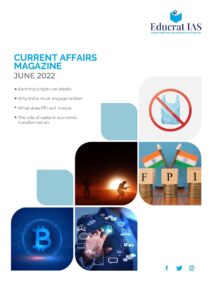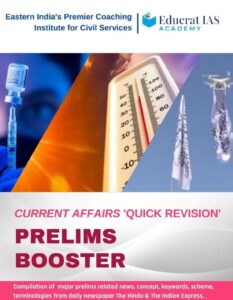What is the need of the One Nation One Ration Card?
One Nation One Ration Card or the ONORC aims to empower all migrant workers to access food grains from any Fair Price Shop(FPS) of their choice anywhere in the country by using their existing ration card. Covid 19 pandemic has created a dilemma of lives and livelihoods for the government as well as citizens. In the present system, a ration card holder can buy food grains only from a designated Fair Price Shop assigned to him in his locality where he/she lives. This is receivable from their designated FPS under Targeted Public Distribution System. A person is entitled to buy subsidized food grains under National Food SecurityAct, 2013. Under this act, a person gets rice at Rs 3/kg, wheat at Rs 2/kg and coarse grains at Re 1/kg.
The dilemma of lives and livelihoods will hurt migrant workers the most because of the absence of food security and basic income. According to 2011 census data, there are 45 crores internal migrants accounting for 37% of the population. This huge population is the driving wheel of the urban economy and the migrant crisis due to any factor, especially food insecurity, will question the development paradigm. The scheme becomes relevant in this context and 32 states and UTs have implemented this scheme till now so that migrant workers have an access to subsidised food grains across the country.
How did the systems evolve?
The PDS system has some inefficiencies leading to the leakage in the system. To plug the leakages in the system, the government initiated a reform process. It used a technological solution involving Aadhar to identify beneficiaries. Along with this, PoS machines are installed to every FPS across the country. The national portability of ration cards will become a reality once 100% seeding of Aadhar and installation of PoS machines are done. It was initially proposed to nationally roll out the ‘One Nation, One Ration Card’ scheme by June 1, 2020.
How will One Nation One Ration Card work?
Ration card portability is aimed at providing intra-state as well as inter-state portability of ration cards. Two separate portals have been created for this purpose. The Integrated Management of PDS (IM-PDS) portal would provide the technological platform for the inter-state portability of ration cards. This would enable a migrant worker to buy foodgrains from any FPS across the country.
The other portal, Annavitran, hosts the data of distribution of food grains through e-PoS devices. This portal enables a migrant worker or their family members to avail the benefits outside their district but within their states. While a person can buy her share of foodgrains as per her entitlement under the NFSA, wherever she is based, the rest of her family members can purchase subsidised foodgrains from their ration dealer back home.

Benefits of One Nation One Ration Card (ONORC)
- Under this scheme, the beneficiaries can get their share of ration in other states also. It seeks to provide universal access to PDS foodgrains.
- The One Nation One Ration Card scheme will empower the consumers as the beneficiaries have the opportunity to opt the dealer of their choice. In case any dealer misbehaves, the beneficiary can switch to another dealer.
- This One Nation One Ration Card scheme will help to achieve the goal mentioned under SDG 2.0. According to Global Hunger India, India ranked 102 out of 117 countries. This scheme will address the poor status of hunger in India.
Challenges associated to the One Nation One Ration Card scheme
This scheme has been brought to reduce leakages in the existing PDS system through Aadhar linked ration cards and smart cards. The concerns associated to Aadhar based inclusion is following:
- There are many sections in the society who do not have an Aadhar card. Thus, they will be excluded from the benefits of the scheme.
- People who work in the construction industry as a construction labour or engaged in some other domestic work find their fingerprints to be changed and it may not match with the ones entered in Aadhar. Thus, these workers could be excluded from the benefits of the scheme for not matching their fingerprints.
- An FPS receives the monthly quota of products strictly in accordance with the people assigned to it. When the scheme will be fully operational it will disrupt the practice and may create pressure on the FPS because it may have to cater more numbers of people owing to migration.
- Also, it may create disparity among the FPS as some of the shops have to cater to more people whereas other shops may have to cater to less number of people owing to having a choice in the hands of people.
- There is no exact data available for the poor households who are migrating to work.




